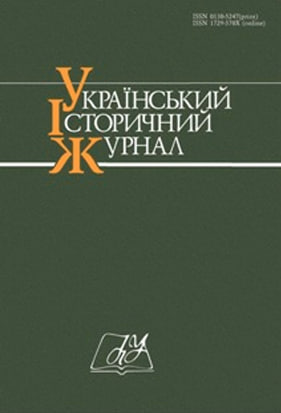Civil Population of Soviet Ukraine in Sight of Military Tribunals: Regulation of Penal Practices (1918–1959)
DOI:
https://doi.org/10.15407/uhj2021.02.112Keywords:
political terror, repressions, military tribunals, martial law and state of emergency, jurisdiction, powers, civiliansAbstract
The article analyzes and highlights the process of transforming military tribunals into an integral part of the tools of political terror. The focus is on expanding the powers of these institutions by referring civilians to their jurisdiction not only in wartime or emergencies, but also in peaceful years, when military justice, in combination with extrajudicial bodies that administer “justice” in a simplified manner, became a means of combating real and imaginary opponents of Soviet power. In this way, a common tradition of the totalitarian regime was revealed, when the neglect of human rights was the norm, not the exception.
The purpose of the article is to establish the reasons and procedure for changing the jurisdiction of ordinary citizens accused of committing “crimes”, which during the period under study were called “counter-revolutionary”, “state” or “political”. The research objectives are to identify the features of expanding the jurisdiction of military tribunals in the period 1918–1959 and their penal practices in “peaceful” times, when these institutions, according to classical law, should “take care” only of military offenses, but in fact became instruments for political massacre of those whom the authorities considered “especially dangerous criminals.”
Research methodology combines the tools of historical and legal analysis, which makes it possible to understand the historical features of the formation of the mechanisms of the Soviet legal system and highlight the institutionalization of total human rights violations that were characteristic for the Soviet repressive system.
Scientific novelty, first of all, is to expand the idea of the tools of political terror. Thanks to the new documents, it is also possible to trace the drift of the Soviet judiciary towards permanent “emergency” in order to simplify the procedure of execution, as well as to look behind the scenes of contradictions between different institutions of the military Themis in the struggle for the most severe punishments.
Conclusions. It has been proven that, at the initiative of the Bolshevik and Communist Party leaderships, ignoring the basic norms of criminal procedure law, military tribunals have been given excessive powers in the field of justice against civilians accused of “anti-state” crimes since the establishment of Soviet power in Ukraine. Along with extrajudicial bodies (troikas, revolutionary tribunals, special meetings at the Cheka / Extraordinary Commission, OGPU / Joint State Political Directorate, NKVD / People’s Commissariat for Internal Affairs, MIA, MGB / Ministry for State Security, etc.) military tribunals became an organic component of the Soviet Themis and an instrument of illegal arbitrariness in the Soviet state.


